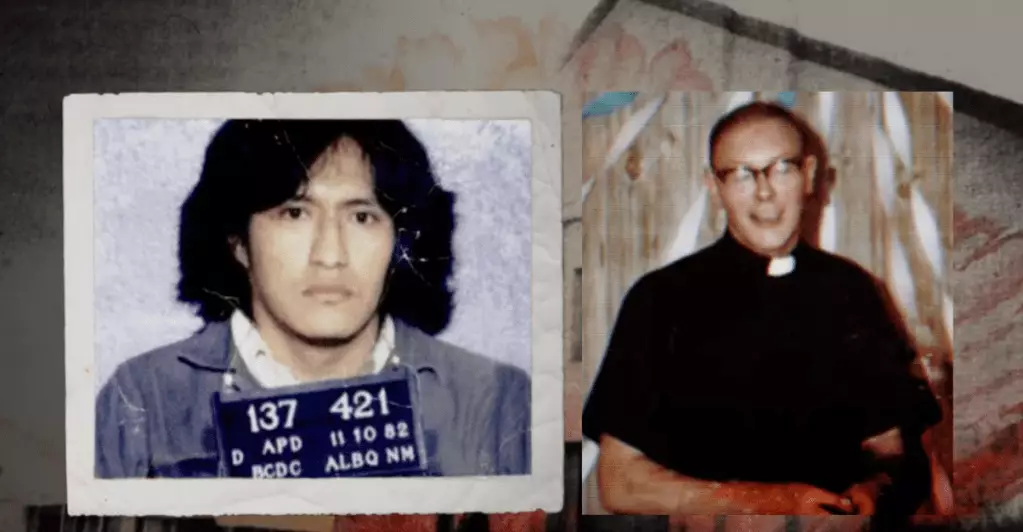In the sun-baked town of Odessa, Texas, a story of injustice and deep societal prejudice unfolds, epitomized by the tragic case of Father Patrick Ryan. His 1981 murder, hidden beneath layers of secrecy and denial, not only uncovers a crime but symbolizes the struggles of marginalized communities—particularly those who are gay and Native American. The discovery of Ryan’s battered body, with arms bound behind him at the Sage and Sand Motel, paints a gruesome picture that begs for not only justice but a critical examination of how the intersections of race and sexuality can distort the pursuit of truth in our judicial system.
James Harry Reyos, a closeted Apache man, was quickly ensnared in this nightmarish tale. Despite having a solid alibi proving he wasn’t in Odessa at the time of the murder, he was convicted based on flimsy evidence and the societal biases that judges and jurors alike harbored. This situation reminds us of a grim reality: when prejudice infiltrates the legal process, it can lead to the wrongful imprisonment of innocent individuals. Reyos spent two decades unjustly incarcerated while desperately seeking exoneration, fighting against the waves of homophobia and racial profiling that marked the entire ordeal.
Reopening a Wound
The narrative takes a startling turn with the appointment of Mike Gerke as the Odessa police chief in 2017. One could argue that the reopening of Reyos’ case was not merely an act of justice, but rather, a long-delayed acknowledgment of the systemic failings in how law enforcement handles cases involving marginalized individuals. A mere true-crime podcast reignited a fire that had long since flickered into obscurity, bringing to light what many would rather keep hidden.
The shocking discovery that critical evidence—latent bloody fingerprints—had never been processed through the AFIS system illustrates a catastrophic failure of the justice system. This oversight, more than a mere technicality, signifies the pervasive neglect that marginalized communities face in the judicial system. While new technology might provide a glimmer of hope in the form of re-investigation, it also serves as a stark reminder of how individuals can suffer while authorities ignore their pleas.
The Weight of Representation
Deborah Esquenazi’s documentary, “Night in West Texas,” emerges as a crucial narrative that captures not only the harrowing tale of Reyos but also the systemic fissures within American society. By focusing on the interplay of identity and injustice, it challenges viewers to reckon with their own understandings of bias. The fact that Reyos was seen as a “throwdown character”—a term loaded with implications relating to race, sexuality, and social status—deepens the gravity of his plight.
In a society that often relegates LGBTQ+ and BIPOC individuals to the background, Esquenazi’s work highlights the necessity of representation in media. Documentaries like this offer a vital platform to question and confront the racism and homophobia embedded in legal narratives. They broaden the dialogue on how guilt is often dictated by societal perceptions rather than factual evidence.
A Community’s Redemption Narrative
Although Reyos’ journey through the labyrinth of wrongful conviction is laced with despair, there are glimmers of hope woven throughout his tale. The unwavering support he received from advocates like the Innocence Project of Texas illustrates a powerful community-driven initiative to seek truth and justice. The collaboration of a dedicated legal team, including representation by Allison Clayton and her students, epitomizes the struggle against institutional inadequacies.
Reyos’ story compels us to think critically about the role of community in redressing past wrongs. It acts as a call to action for all of us who occupy spaces of privilege to advocate for those who remain voiceless in the face of systemic oppression. The film does not shy away from the harsh realities of Reyos’ suffering, but it also underscores the potential for resilience and redemption in the communal fight for truth.
This is more than just a story about an individual’s traumatic experience; it serves as an indictment of the societal structures that allow such injustices to occur. “Night in West Texas” illuminates these critical conversations and serves as a poignant reminder of the work that lies ahead to create a system where justice is genuinely equitable for all.

Leave a Reply